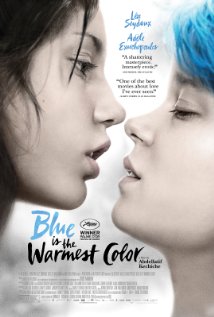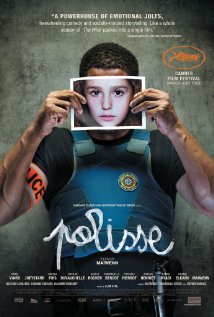 Blue Is the Warmest Color/2013/Sundance Selects/179 min.
Blue Is the Warmest Color/2013/Sundance Selects/179 min.
I’m going to start with a sort of Spoiler Alert: “Blue Is the Warmest Color” is not a neo-noir, not even close. But I was curious about the movie because it created quite a buzz at this year’s Cannes Film Festival and snared the top prize there, the Palme d’Or.
Directed by Abdellatif Kechiche, “Blue” is a coming of age/love story that follows a teenager named Adèle (Adèle Exarchopoulos) as she navigates a brief affair with a boy and a lengthy intimate relationship with an older woman Emma (Léa Seydoux). Adèle also finishes school, finds a job as a teacher, makes mighty platters of pasta and sheds a lot of tears. In other words, it’s a richly detailed character study and an intense, unhurried exploration of a charming but ordinary woman’s everyday life. One day ends, another starts.
At nearly three hours long and containing rather graphic sex scenes, this is perhaps not the movie to go to with Aunt Ginger. I was a bit on the fence about it myself. But, happily, “Blue” never dragged or felt gratuitous, tasteless or solipsistic. What made it so engrossing for me was the sublimely naturalistic performances from everyone in the cast and a story that, while sometimes mundane, is also largely devoid of clichés. Moving and memorable, “Blue” delivers on its prizewinner promise.
“Blue Is the Warmest Color” opens today in LA and New York. In French with English subtitles.












![Melancholia_320[1]](http://www.filmnoirblonde.com/wp-content/uploads/2011/05/Melancholia_3201-150x150.jpg)






From FNB readers